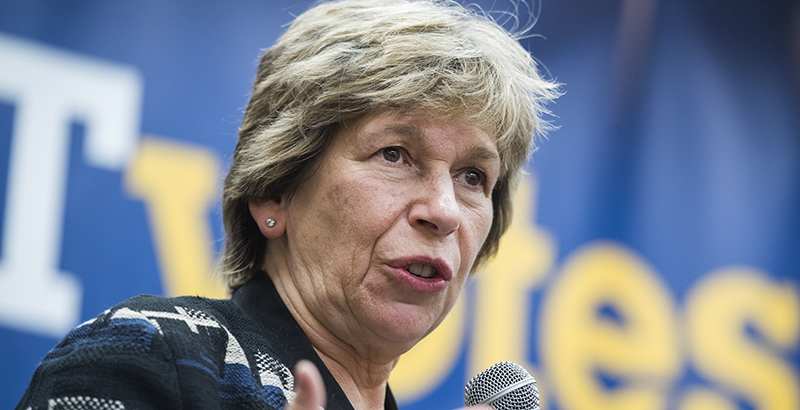By: ZOË KIRSCH
 American Federation of Teachers President Randi Weingarten (Getty Images)
American Federation of Teachers President Randi Weingarten (Getty Images)
See previous 74 interviews: Sen. Lamar Alexander talks about finally fixing the federal financial aid application, Sen. Cory Booker talks about the success of Newark’s school reforms, former Education Secretary Arne Duncan talks about the need for empathetic leadership through the COVID-19 crisis. The full archive is right here.
American Federation of Teachers President Randi Weingarten still lives in New York City, the place where she grew up, taught high school, studied law and found her voice as a labor leader. The daughter of a NYC educator, Weingarten knows that the nation’s largest school district, like so many others across the United States, wasn’t equipped to withstand a devastating global pandemic — not on its own, at least.
The Biden administration can’t arrive fast enough for Weingarten, who says the Trump team has done little to support teachers in New York and elsewhere around the country, and has made “a mess” of distributing the COVID-19 vaccine that could put an end to the current education crisis.
The 74 spoke to the head of the nation’s second-largest teachers union about how the country should tie reopening schools to vaccinating teachers, what President-elect Joe Biden’s education secretary pick, Miguel Cardona, should prioritize in crafting a national reopening plan and how far short the recently passed $900 billion pandemic relief bill falls in getting students and teachers safely back in the classroom.
This interview has been edited for length and clarity.
The 74: I think a lot of us have been trying to wrap our minds around the logistics of vaccine distribution and deployment. Do you have a sense of what that will look like for teachers?
Well, [in] health care [vaccine distribution] is easier because it’s being done through people’s employers. There’s many fewer hospitals and hospital settings than there are schools, so states can wrap their arms around that more readily.
Schools also don’t have [proper] refrigeration. [The Pfizer vaccine needs to be stored in ultracold settings; Moderna’s is also maintained in specially regulated, chilled settings.] The refrigeration needs are intense, so one of the things we suggested is that schools make themselves distribution sites, like what happened with polio, but you’d have to bring in the refrigeration.
You can make schools sites for vaccination delivery, and then you can also do [it] through people’s health insurance plans, through pharmacies, through doctor’s offices, or through hospitals, but people are going to have to then get to those hospitals. They’re going to have to wait in line.
There’s different ways of being able to do it, but it takes infrastructure and it takes organization and it takes leadership.
Read the rest of the article here.